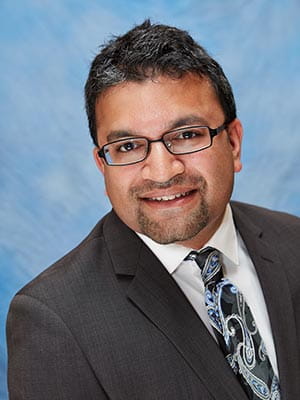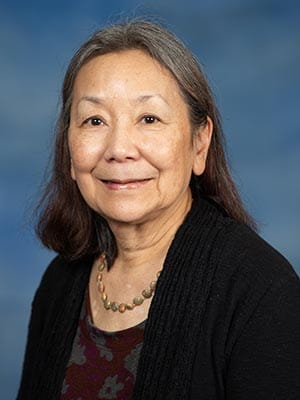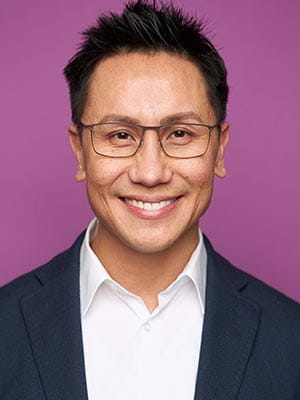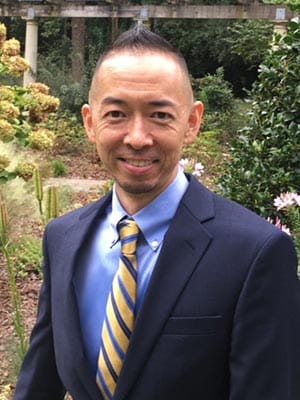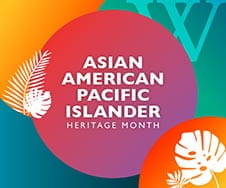
The U.S. government declared seven days in May of 1979 as Asian/Pacific American Heritage Week, a resolution signed by President Jimmy Carter on October 5, 1978. In 1990, that proclamation was amended to expand the celebration to the entire month. May was selected to commemorate the immigration of the Japanese to the U.S. on May 7, 1843. It was also chosen to mark the completion of the transcontinental railroad on May 10, 1869, with significant contributions from Chinese immigrants.
Today, Asian American and Pacific Islander Heritage Month recognizes the myriad of contributions in every discipline and the ways these cultures enrich our lives. Some of these achievements include:
- Nasir Ahmed is an engineer who led a team of researchers that developed the Discrete Cosine Transform, which became the basis of modern video chatting technology.
- Dr. Min Chueh Chang helped develop the birth control pill and was a pioneer of in vitro fertilization (IVF).
- Physician and pediatric immunologist Dr. Katherine Luzuriaga developed one of the early diagnostic tests for human immunodeficiency virus (HIV) infection in children, and, in conjunction with Dr. Deborah Persaud, was recognized for work leading to the "functional cure" of an HIV positive infant.
- Derald Sue and Stanley Sue were influential figures in ethnic minority psychology and founded the Asian American Psychological Association.
- Computer architect Ajay Bhatt is the co-inventor of the USB, one of the most popular ways of transferring data from one device to another.
- In 2021, Kamala Harris became the first Asian and Black Vice President of the U.S., breaking a nearly two-century barrier in American politics.
Here are some of the achievements of several Walden Asian and Pacific Islander community members who strengthen the university and its mission to effect positive social change.
Dr. Sri Banerjee – Health Communication in Action
How do you make the greatest difference? Dr. Sri Banerjee thought the answer would be to see patients as a physician. He then saw the bigger picture of social determinants of health – "that a person’s ZIP code can have a greater impact on their health than their genetic code." He realized he could save lives by the millions in public health, which led him to becoming a Walden PhD in Public Health, Epidemiology specialization graduate and core faculty member in the PhD in Public Health program.
He’s also been inspired by healthcare experts’ medical humanitarian trips to help alleviate poverty and social inequities. It helps him think about the problems he’s seen in numerous trips to India. Dr. Banerjee believes that researchers have a responsibility to communicate their knowledge broadly. He is just as comfortable writing for peer-reviewed journals as he is being an expert public health source in the news. To him, both are vital. He’s been quoted by Healthline, POPSUGAR, Health Digest, Yahoo! News and HelloGiggles about the COVID-19 pandemic.
"It’s not enough to hope the knowledge trickles down from academia to the people who can benefit," says Dr. Banerjee. "We are in a unique position to interpret research in understandable terms to the general public."
Dr. Gloria Kumagai – Empowering Principals
As P-12 schools face renewed urgency to develop cultural proficiency, their principals have an advocate and expert in Dr. Gloria Kumagai. She brings more than 30 years of experience as a principal, multicultural education coordinator, and academic coordinator for Walden’s MS in Education (MSEd) and EdS in Educational Leadership and Administration (Principal Licensure Preparation) programs, which she has led since 2009.
"Cultural proficiency has been a long-term effort for schools not only in what they teach, but how they teach," says Dr. Kumagai. "You can’t just look at curriculum. You must look at the use of data, resource allocation, policies, and programs, including special education, where students of color are often overrepresented, and gifted education, where they are underrepresented. Ensuring that all students, no matter who they are, can reach high standards – that’s social change."
Outside of Walden and the education community, Dr. Kumagai is active on the boards of the Twin Cities Chapter of the Japanese American Citizens League and Theater Mu, the second largest Asian American theater organization in the country.
Dr. David Doan – Striving for Equality
Dr. David Doan, a Walden PhD in Health Services graduate, is striving for equality in sports, culture and healthcare. In high school, he swam, played volleyball, and ran track. Today, he volunteers as the officer of ceremonies for the Federation of Gay Games. He is also an accomplished musician. He played with the Vienna Philharmonic and London Symphony Orchestra. Now, he plays flute and serves as president of the Gay Freedom Band of Los Angeles. He also chairs several board of directors committees for the Lesbian and Gay Band Association.
Although his love of sports and culture endures, he chose a career in healthcare – first at the bedside as a registered nurse and then on the business side in product management and consulting. His love of learning helped make those transitions possible. After completing his dissertation on "The Influence of Culture on HIV Disclosure Among Gay Asian Males," he began volunteering as an HIV/AIDS section councilor and abstract reviewer for the American Public Health Association.
He also uses what he learned at Walden in his role at Accenture, where he applies theoretical and foundational healthcare administration and public health frameworks to help clients with their health strategy, execution and operational needs. "All those things are near and dear to me, and I want to always give back," says Dr. Doan.
Dr. Makoto Ikegami – Advocating for Culture Competence
Dr. Makoto Ikegami, a Walden Doctor of Social Work graduate, was born deaf to hearing parents. He became the first recipient of the Nippon Foundation Overseas Scholarship from the Japanese ASL (American Sign Language) Signers Society and went to college to become a social worker who could advocate for deaf and hard of hearing people. Dr. Ikegami focused his doctoral study on "Social Workers’ Experiences With Deaf and Hard of Hearing People With Mental Illness" and expanded his role in creating and delivering culturally competent care to this population.
He is an advisory committee member for Americans Against Language Barriers and the Georgia Coalition Against Domestic Violence. Dr. Ikegami is also on the boards of the American Deafness and Rehabilitation Association and National Asian Pacific Islander Deaf Coalition. He is an ASL therapist at a residential substance abuse program in Atlanta for deaf and hard of hearing men. Dr. Ikegami also founded Deaf Access to Quality Life to provide culturally and linguistically appropriate services more broadly.
"Our ultimate goal is to provide effective, cross-disciplinary services that will result in the best care for our clients in the deaf community," says Dr. Ikegami.
Glenda Casallo – Called to Nursing
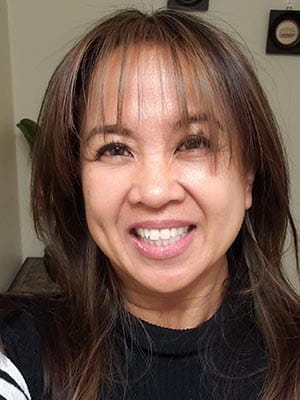
She’s worked in that high-pressure environment for most of her career and enjoys the challenges and continuous advances in technology and clinical practice. She started Walden’s program in January 2020 after trailing her military spouse from Germany back to the U.S. – just in time for the coronavirus pandemic to put immense pressure on ICUs.
"The patients were so sick, and there was such a limited number of ICU nurses," says Casallo. "To be a good ICU nurse, you have to be able to learn new technology, medications and more, and you have to be able to apply it clinically. For me, nursing is a calling."
Anning Yung – Emphasizing Empathy
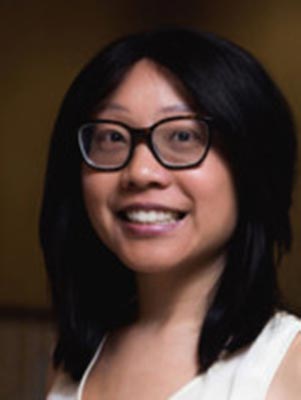
Yung considers her parents as role models, especially because they sacrificed successful careers in China to immigrate to the U.S. when she was a child to give her more opportunities. She honored them by earning a bachelor’s in economics and Asian studies and studying abroad in China. She later earned an MBA that led to international business roles with major companies.
"I love Walden’s mission," says Yung. "What I always heard from my parents is that education is going to get you where you need or want to be, so I love working for an organization that gives so many people these opportunities and encourages them to use it to do good."
Wendy Lin – Branching Out
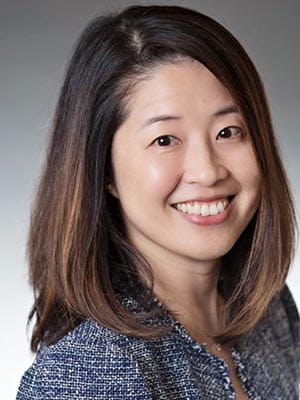
"I have this yearning inside to learn a little bit more and continue to grow," says Lin.
Twenty years since leaving Taiwan, she still considers her father a role model, even if in many ways they are opposites. His contemplative nature reminds her to slow down and think things through. Lin may be quicker to act, but her father and family connect her to her roots. Living half a world away in Maryland, she hopes her son will learn Mandarin so he can communicate with his family in Taiwan, remain connected to his heritage, and know how to embrace other cultures like she has.




